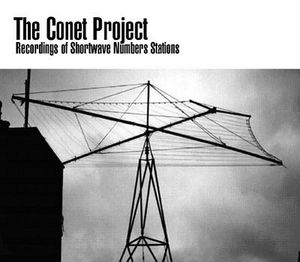User:Dave Young/Thematic Project 1: Difference between revisions
Dave Young (talk | contribs) (Created page with "==Covert Networks== thumb Number stations: Radio networks that broadcast codes, popular theories are that they are used for espionage purposes or for d...") |
Dave Young (talk | contribs) |
||
| Line 1: | Line 1: | ||
==Covert Networks== | ==Covert Networks== | ||
===Random Notes=== | |||
[[File:conetproject.jpg|thumb]] | [[File:conetproject.jpg|thumb]] | ||
Number stations: Radio networks that broadcast codes, popular theories are that they are used for espionage purposes or for drug smuggling.<br/> | Number stations: Radio networks that broadcast codes, popular theories are that they are used for espionage purposes or for drug smuggling.<br/> | ||
| Line 9: | Line 10: | ||
Radio as a filesharing medium? Send binary as audio. | Radio as a filesharing medium? Send binary as audio. | ||
[[ | |||
===The Fruitsalad Enigma=== | |||
[[File:pineapple.jpg | thumbnail]] | |||
Continuing with the idea of covert networks and cryptography, I have begun working on an experimental encryption tool (alpha stages at the moment) codenamed The Fruitsalad Enigma, and returns the encoded message as a list of fruit (some exotic variants included). The encryption algorithm, as the name suggests, is based on the Enigma machine - used during World War II and cracked by a collaborative effort that included the Polish resistance and a team at Bletchley Park (Britain's wartime decryption centre). Like the Enigma, it employs conceptual use of "rotors" (albeit conceptually rather than mechanically) which alters the encryption algorithm for each character in the message, making it quite difficult to decrypt. The idea arose out of discussions about data, privacy, and facebook. Thinking that facebooks advertising algorithms were content-dependent, I thought that flooding your facebook profile messages with status updates about fruit would skew the advertising data facebook collects about you. I've since discovered that the advertising algorithms are slightly more meta, and in fact do not depend on what's on your "wall" (as far as I understand it at least, facebook seems happy to remain ambiguous about such issues at times). | |||
I'm using this "project" as a way of learning more about string operations in python. I'm also curious about using python alongside bash, perhaps building a terminal-based UI with 'dialog' so the user can input their text, providing a suitably anachronistic aesthetic for an ecnryption/decryption tool :) | |||
A point of interest for me is that with the original Enigma, no encoded letter every referred to itself (ie the letter 'a' was never encrypted as 'a') - this pattern was picked up by the codebreakers and was an important feature that led to its eventual decryption. | |||
Revision as of 20:14, 27 November 2011
Covert Networks
Random Notes
Number stations: Radio networks that broadcast codes, popular theories are that they are used for espionage purposes or for drug smuggling.
One-time pads: indecipherable coding systems for eavesdroppers. Often used to encrypt number station broadcasts.
Automated reel-to-reel tape recorders: timed to play broadcasts at certain times of the day. Occasionally they "fail", and broadcast the code at an incorrect speed, or broadcast the wrong code entirely.
Re-watch: The Conversation by Francis Ford-Coppola - Listening/Paranoia/Cold War/Nixon/Espionage.
Radio as a filesharing medium? Send binary as audio.
The Fruitsalad Enigma
Continuing with the idea of covert networks and cryptography, I have begun working on an experimental encryption tool (alpha stages at the moment) codenamed The Fruitsalad Enigma, and returns the encoded message as a list of fruit (some exotic variants included). The encryption algorithm, as the name suggests, is based on the Enigma machine - used during World War II and cracked by a collaborative effort that included the Polish resistance and a team at Bletchley Park (Britain's wartime decryption centre). Like the Enigma, it employs conceptual use of "rotors" (albeit conceptually rather than mechanically) which alters the encryption algorithm for each character in the message, making it quite difficult to decrypt. The idea arose out of discussions about data, privacy, and facebook. Thinking that facebooks advertising algorithms were content-dependent, I thought that flooding your facebook profile messages with status updates about fruit would skew the advertising data facebook collects about you. I've since discovered that the advertising algorithms are slightly more meta, and in fact do not depend on what's on your "wall" (as far as I understand it at least, facebook seems happy to remain ambiguous about such issues at times).
I'm using this "project" as a way of learning more about string operations in python. I'm also curious about using python alongside bash, perhaps building a terminal-based UI with 'dialog' so the user can input their text, providing a suitably anachronistic aesthetic for an ecnryption/decryption tool :)
A point of interest for me is that with the original Enigma, no encoded letter every referred to itself (ie the letter 'a' was never encrypted as 'a') - this pattern was picked up by the codebreakers and was an important feature that led to its eventual decryption.


